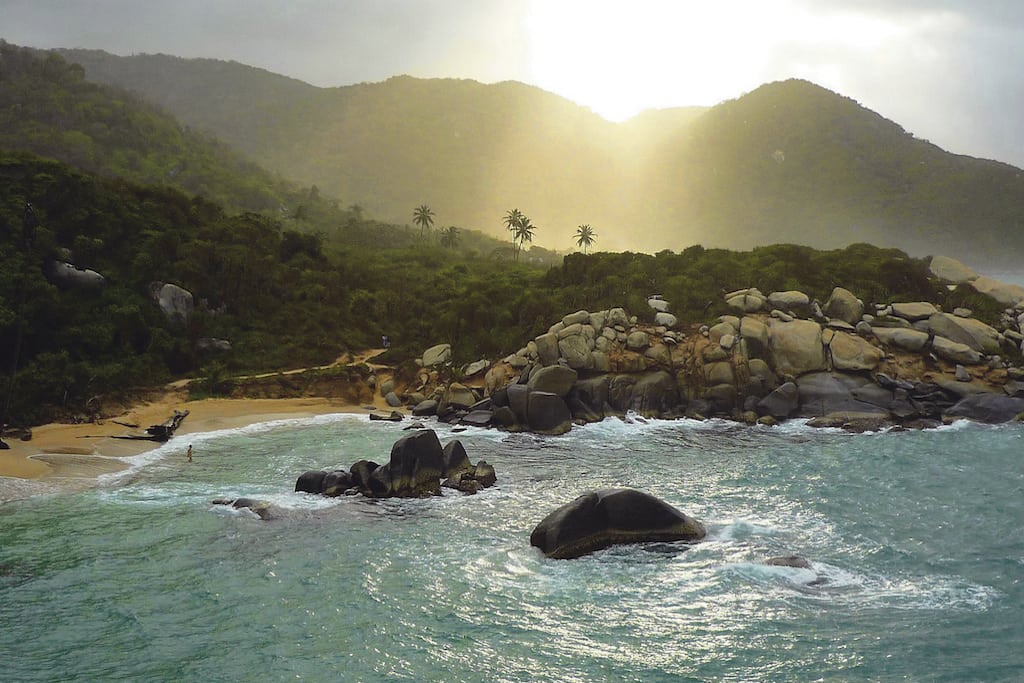Colombia’s Natural Wonders Attract a New Generation of Luxury Travelers

Skift Take
This sponsored content was created in collaboration with a Skift partner.
Authenticity has become the new luxury as more international travelers seek out enriching life experiences by exploring the world’s natural treasures — and Colombia has emerged as a top destination. “Colombia is one of the world’s most biodiverse countries, home to one out of every 10 species on earth, spanning snowcapped mountain ranges, tropical rainforests, and stunning islands and beaches. It’s no surprise that The New York Times, National Geographic, and Virtuoso each named Colombia as one of the top places to visit in 2018,” says Costas Christ, a global sustainable tourism expert who has worked and traveled extensively in Colombia.
As tourism increasingly becomes one of the country’s main economic drivers — the second largest after oil and gas — leaders in the industry are tapping into Colombia’s rich biodiversity to appeal to a new generation of luxury travelers looking to explore the country’s natural heritage.
According to the United Nations World Tourism Organization’s (UNWTO) December 2017 report, the number of international tourist arrivals in Colombia grew nearly three times as fast as the global average and more than 10 times as fast as the number of international tourist arrivals to North America between January and October of 2017. Factors such as the country’s political stability, strong tax incentive that has attracted global hospitality brands to invest in Colombia, and robust economic development have helped put Colombia on the map as an in-demand travel destination. As more travelers seek unspoiled wilderness and natural beauty, Colombia’s tourism leaders believe that celebrating the country’s spectacular geography, unique flora, and wildlife will help drive tourism as well. At the same time, Colombia has embarked on a national sustainable tourism development plan to ensure that the economic benefits of tourism help protect nature for future generations of international travelers and Colombians alike.
Along with a range of ecotourism activities and services offered to visitors, birdwatching is also high on the list of tourism activities in Colombia, and for good reason. According to Felipe Jaramillo, president of ProColombia, the country’s organization responsible for the international promotion of tourism, trade, and foreign investment, “Colombia boasts the highest number of bird species worldwide — 1,921, to be exact, or 20 percent of all bird species on earth. Birding tours, expert local guides, transportation, and a wide array of food and lodging in Colombia have led to an influx of birdwatchers. Regions such as Sierra Nevada de Santa Marta, the highest coastal mountain in the world, topping 18,000 feet, located in the Caribbean region, and Valle del Cauca, located in Colombia’s eastern pacific region, are quickly developing and becoming some of the most sought after destinations for birdwatching in the world.”
National Geographic recently declared 2018 as the Year of The Bird, and ProColombia realizes how important they are when it comes to issues pertaining to sustainability and environmentalism. ProColombia recently launched its new campaign, “Colombia #1 Country in Bird Species on Earth,” at the American Birding Expo and has partnered with Birdlife International, the worldwide leader in the conservation of birds species, for its Species Champion conservation project.
Colombia’s tourism leaders are looking to promote the country’s other impressive natural attractions as well, many of which were previously off-limits to visitors during the armed conflict, before the peace treaty signed by Colombian President Juan Manuel Santos, for which he received the Nobel Peace Prize. The ravishing wilderness areas in regions such as Caqueta, Casanare, Vichada, and Guaviare each have potential for adventure and ecotourism experiences such as horseback riding, hiking, sport fishing, and wildlife viewing. ProColombia is actively working to promote the tourist offerings in these post-conflict regions, inviting travelers to explore.
Colombia’s leaders see the value of the country’s unique natural heritage and the importance of sustainable tourism as a way to support conservation and deliver important social and economic benefits to local people. In 2017, President Santos was also regarded by the National Geographic Society for his successful work in greatly increasing the country’s protected land and marine areas.
This content was created in collaboration with ProColombia and published by Skift’s branded content studio, SkiftX.




